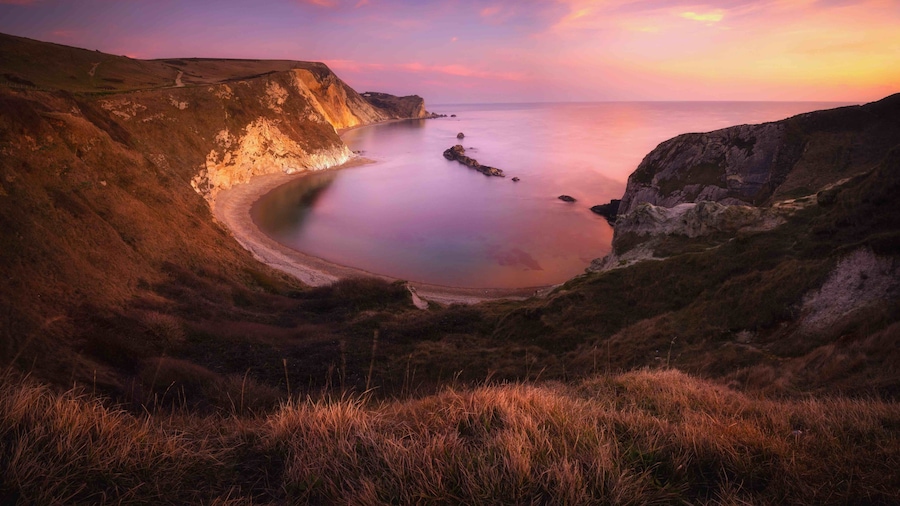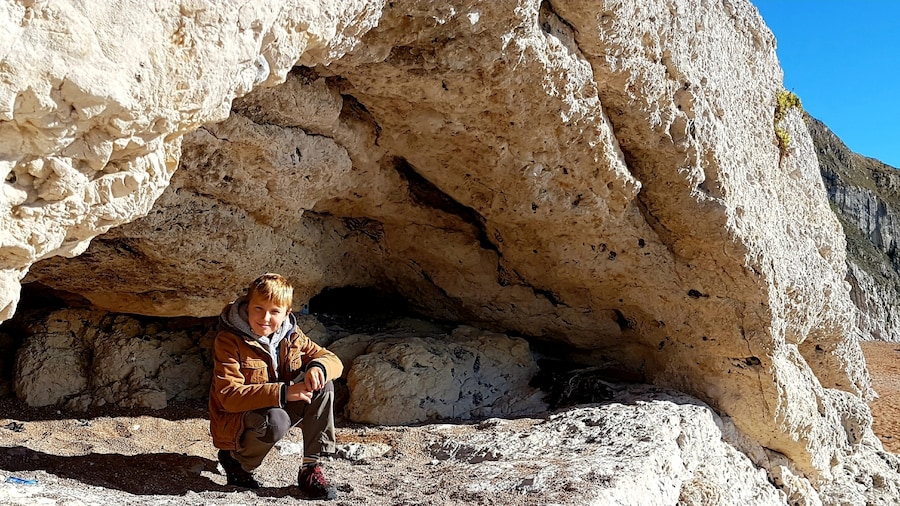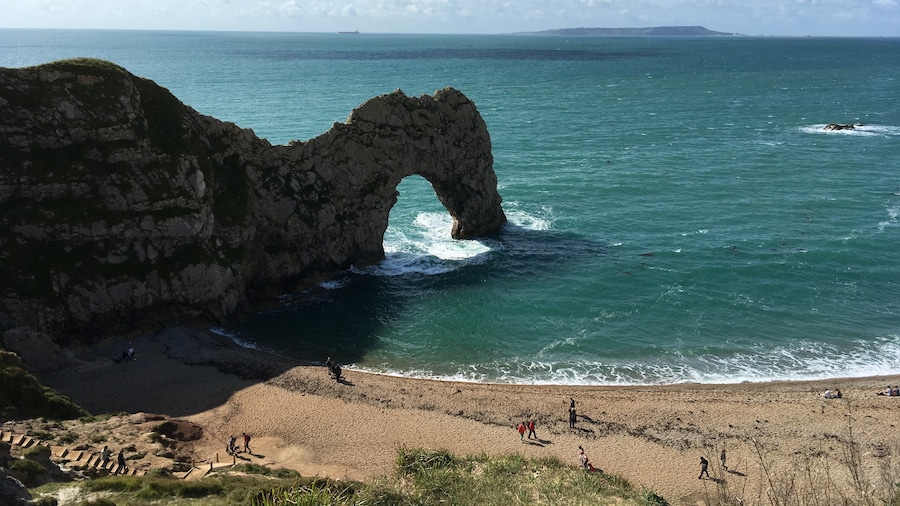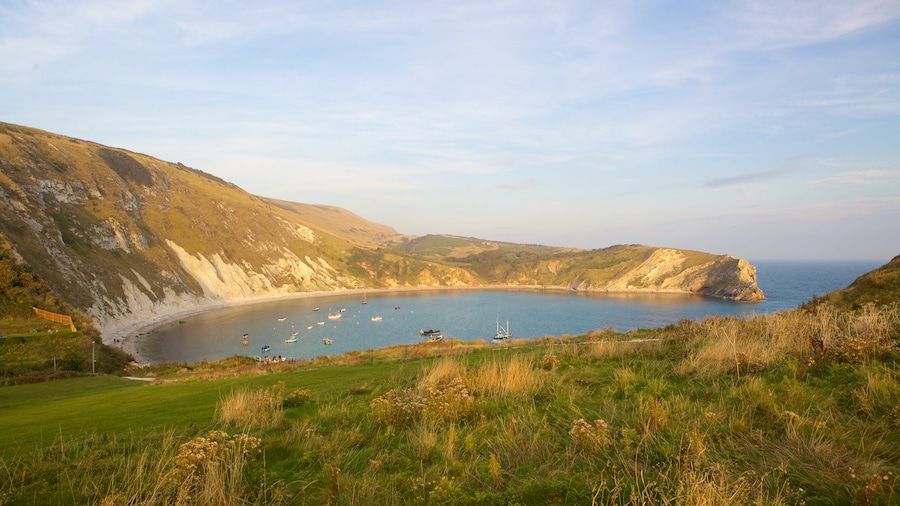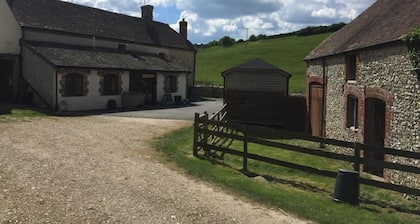Durdle Door is a natural arch carved into the limestone cliffs on the Jurassic Coast of England. The geological feature is the unquestionable highlight of the Lulworth Estate, which is open to the public and consists of 12,000 acres (4,856 hectares) of picturesque terrain. Go for a romantic stroll along the stony beach and take photographs of this stunning geological feature.
The arch was formed by sea erosion on the cliff, which gradually wore away the weaker layers, leaving only the arch standing. Today, you’ll be able to spot other remnants of old arches in the form of rock stacks and stumps. As the crashing waves continue to pound Durdle Door, this is its inevitable future. The site’s name derives from the Old English word “thirl,” which means drill. The famous arch has featured in music videos and movies, such as Wilde and Nanny McPhee.
Note the fossil ripple marks in the slabs of rock at the lower section of the arch. At the top, there are visible rings that mark life from millions of years ago. Capture photos of these intriguing inscriptions of time.
When the weather is sunny, the pebbly beach is a nice place to spend the day. Work on your tan or go for a swim in the sea with your family. The beach is quite steep, so weak swimmers and families with children should take extra care.
Stroll along the green hills behind the beach for excellent views of the sea and the English countryside. Enjoy the serene ambiance and the fresh sea breeze as you traverse the large meadows. In the summer, there is a shop selling rock and fossil souvenirs as well as refreshments.
Durdle Door is 14 miles (22.5 kilometres) east of Weymouth on the south coast of England. You can access the site through the villages of Lulworth and Winfrith. Walk to the cliff tops and make your way down the steep hills to the beach. There is a parking lot nearby.








